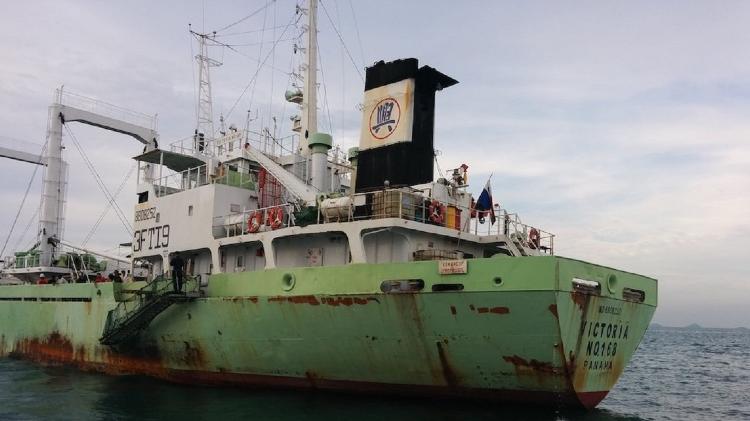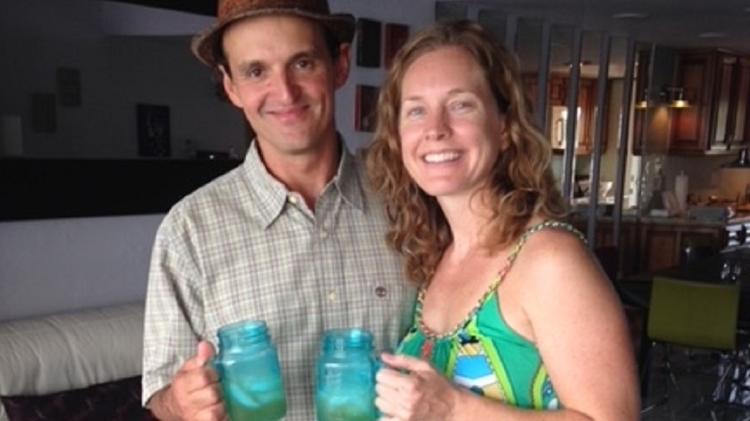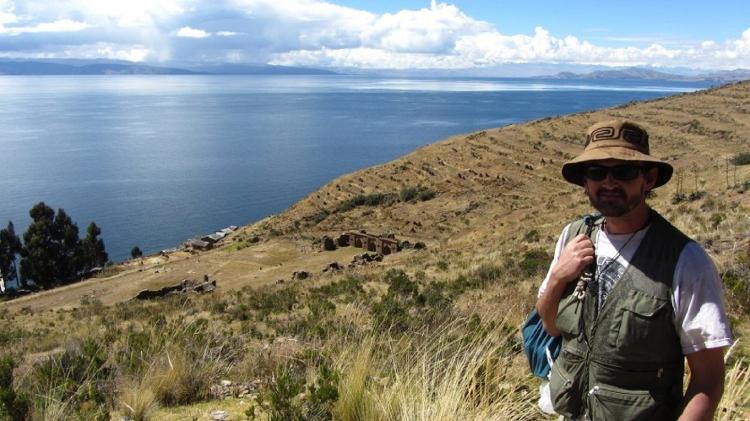Activist Keith Davis was lost at sea thousands of miles from his home. His body was never found. Now, the mystery of his death draws attention to an industry that is often overlooked by most people: the fishing industry.
You can buy a can of tuna for less than $1 at a local grocery store in Texas, USA. But like so many things that seem cheap, these low prices are only possible because of people’s dangerous and largely invisible work in remote places.
An idealistic and adventurous ukulele player from Arizona, Davis has worked to make the world of commercial tuna fishing visible. And he may have paid a price for it.
“It was very impulsive, very romantic, driven by the moment,” says friend and colleague Anik Clemens. “He was very passionate about what he did. He wanted to protect the oceans, he wanted to protect fishermen and their industry.”
In 2015, in the middle of an apparently routine trip on the Victoria 168, part of a fleet of fishing boats owned by a Taiwanese conglomerate, the 41-year-old disappeared hundreds of kilometers off the coast of Ecuador.
The crew searched the ship but found no trace. When news of his disappearance reached his friends and colleagues on the mainland, many were immediately suspicious.
“He had 16 years of service. And he was undoubtedly as professional, caring and safe as he could be,” says Bubba Cook, a friend of Davis and director of the Western and Central Pacific Tuna Program at the environmental NGO WWF. Wildlife Foundation).
“The inevitable conclusion is that something must have happened to him. To this day, I’m convinced he saw something he didn’t want the people on that ship to see.”
The BBC’s new podcast, Lost At Sea, explores her disappearance.
Fishing Observer
Davis was a marine biologist who worked as a fisheries watchdog, a little-known and very risky profession. An estimated 2,500 observers live on fishing vessels for months, traveling hundreds of miles from shore to protect these waters from overfishing and gather scientific observations that will help us understand the health of our oceans and marine life.
Observers live among the crew, working the same grueling hours in the same harsh conditions. However, they are sometimes viewed with suspicion, as part of their job is to report illegal activity.
But what could Davis have witnessed that could put him at risk? The high seas, where legal jurisdiction is complex and there is little oversight, are known for illegal activities, particularly drug and weapons trafficking and sometimes human trafficking. To be clear, however, the BBC found nothing to indicate that Davis had witnessed any of these activities on Victoria 168.
The boat he was working on at the time of the disappearance was involved in what became known as a transshipment. Relay ships supply fresh material to tuna fishing boats and transport freshly caught fish back to shore. This process can allow some tuna fish to stay at sea for years, helping to save costs – and allowing a can of tuna to cost $0.99.
Observers who witness illegal activity are in an incredibly vulnerable position. While Davis was working on Victoria 168, the captain’s computer was the only means of communication with the coast.
The people who do his work are sometimes trained to speak in code when they see something too sensitive to say out loud. While Davis liked to be an observer, he was also aware of the dangers of the job. “Many of us have witnessed gunfights, stabbings, slavery… many of which we had to swallow as ‘part of the job,'” she wrote on Facebook a year before she disappeared.
Even more worrying is that Davis’ alleged death was not an isolated incident. Several observers disappeared or died under mysterious circumstances – two more incidents happened in the months the BBC was working on the podcast.
Most of these cases have much less visibility than Davis. This is because many observers are Pacific Islanders working to support their families, not adventurous American men like Davis.
They often come from communities with a strong history of artisanal fishing – a local industry that has in many cases been devastated by global fishing fleets using transshipment.
When men like Charlie Lasisi, an observer from Papua New Guinea, or Eritara Aati Kaierua of Kiribati, died suspiciously, the news didn’t cut it. But such observers bear the brunt of our desire to buy tuna.
“We find it extremely disturbing that no conclusion has been reached as to what happened to Keith, there is not much we can do,” the company MRAG Americas, which employs him, said in a statement. “We continue to strive for maximum safety for our observers at sea and on land.”
“Gilontas Group has cooperated with the authorities conducting the investigation,” said Grupo Gilontas, owner of the Victoria 168.
Officially, we don’t know whether Davis died accidentally, took his own life, or was killed. But what we do know is that much of the illegal activity that occurs at sea is based on the idea that those far from the coast where there is no cell phone signal or security cameras are essentially invisible to us on the mainland.
The work of observers who witnessed what happened at sea could make them vulnerable.
“Observers don’t get support from the fishing industry. They don’t get support from agencies. They don’t get support from their employers, from contractors. They’re finally alone,” says former observer Liz Mitchell. President of the Association of Professional Observers.
WWF’s Bubba Cook has been following the unexplained deaths of bystanders for more than a decade. “One of the biggest problems is that we don’t know how many observers are missing,” he says. “Here in the Pacific, there was about one observer per year. And that’s just [desde] We started keeping records. How many have died at sea under various circumstances or have never returned home?”
There’s also the Global Fishing Watch map, an open access tool that shows the location of more than 65,000 ships from 2012 to today.
*Rachel Monroe is the narrator and correspondent of the BBC podcast. lost at sea. He contributes to the journal. New Yorker and is a writer.
– This text is published insidehttps://www.bbc.com/portuguese/geral-62824145
source: Noticias


